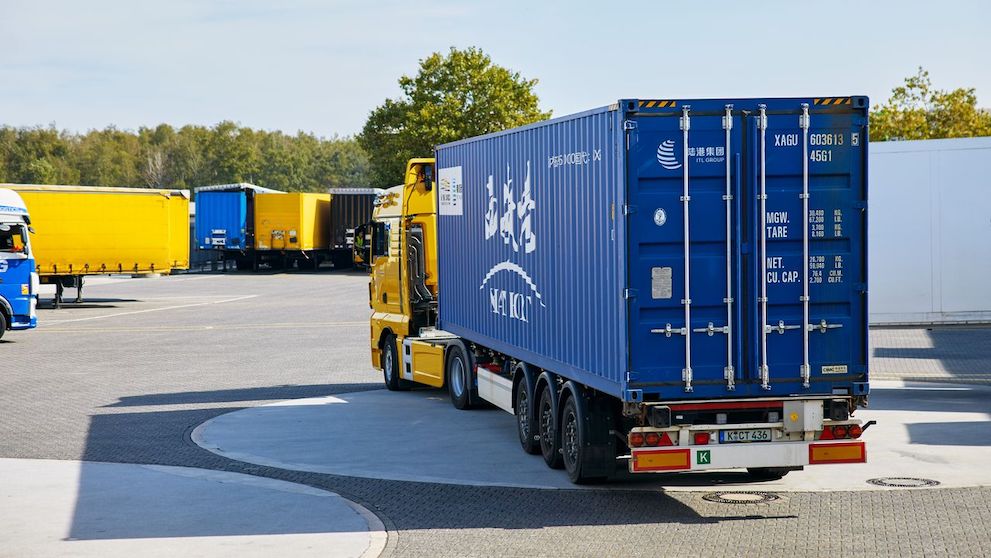In today's globalised economy, international express shipping has become a pivotal element of business strategy for enterprises in Vietnam. This is especially so when it comes to Europe, Vietnam's third largest export market, which recorded a robust trade surplus of US$35.5 billion in 2022, according to the European-American Market Department under the Ministry of Industry and Trade (MoIT). The European Commission has also reported that Vietnam’s top exports to the region include electronic products, footwear, textiles, furniture, seafood, coffee and rice.
Given the surge in trade between Vietnam and Europe, the European Union Vietnam Free Trade Agreement (EVFTA) has provided an even greater impetus to this thriving international commerce. The EVFTA, which eliminates almost 99% of customs duties between the European Union (EU) and Vietnam, is expected to increase Vietnam’s gross domestic production by 4.6% and its exports to the EU by 42.7% by 2025. As a result, the European market has emerged as a lucrative destination for Vietnamese exports, presenting a wealth of opportunities for local businesses.
In light of these developments, it becomes crucial for Vietnamese enterprises to gain a comprehensive understanding of the optimal strategies for shipping from Vietnam to Europe. By mastering these best practices, they can successfully navigate the complexities of international logistics and fully capitalise on the burgeoning export opportunities available in Europe.
1. Take note of customs regulations and taxes
Customs taxes
While the EVFTA provides significant relief from customs duties, Vietnamese businesses must still account for other applicable fees, particularly the Value-Added Tax (VAT) and import duties specific to European countries. It's worth noting that these import tax rates are not uniform across the continent. For instance, while France levies a standard VAT rate of 20% on all imported goods and services, Denmark imposes a higher rate of 25%.
Beyond VAT, import duties also apply and can vary between 5% and 14% for industrial goods originating from non-EU countries. Furthermore, agricultural products and meat products might be subjected to variable fees.
It's also crucial to note the recent changes in VAT regulation in the EU, specifically the abolishment of the de minimis rate across most EU member states. This change implies that all goods imported into the EU are now subject to VAT, regardless of their value. This underscores the need for businesses to remain informed about their financial obligations when shipping goods to Europe and budget appropriately.
Restricted goods
Some goods entering Europe are subject to special requirements. A few examples include:
- Alcohol and tobacco products: These may require the submission of the VI1 Form, alongside country of origin, and quality and sanitation certificates.
- Chemicals and hazardous materials: Strict labelling and packaging is required that uses the standardised system set out in the Classification, Labelling and Packaging Regulation for all EU countries.
- Electronic equipment: A Conformité Européenne (CE) stamp is required on all electronics entering EU countries as per the European EMC Directive 2014/30/EU.
- Pharmaceutical products: All shippers must obtain the European Medicines Agency's (EMA) certification before shipping human and veterinary medications
Ensure you have the necessary permissions to avoid delays.
Prohibited goods
Certain goods are absolutely prohibited to ship. Stay aware of these restrictions to avoid any complications during customs clearance in Europe:
- Counterfeit products
- Explosives and ammunition
- Protected wildlife and endangered species
- Illegal drugs
We understand that navigating customs taxes and duties can be challenging, let alone identifying what’s prohibited and restricted. With our team, however, importing and exporting is a breeze. Our specialists can keep you updated on the latest regulations, which include customs procedures for import and export, estimated taxes and more.
However, you’re also advised to find out what is restricted and prohibited to export via DHL Express:
DHL Express strictly prohibits the shipment of the following items:
- Living creatures
- Animal products
- Human remains
- Precious metals (bullion)
- Cash and traveller's cheques
- Gemstones
- Firearms and explosives
- Illegal and counterfeit goods
DHL Express will not transport the following items unless a prior agreement is reached after conducting a business case by DHL, and a written record of the approved items is maintained with the Customer:
- Antiques, artworks, and fine art
- Tax stickers/banderols
- Tobacco products and electronic cigarettes
- Hazardous goods
- Commemorative coins, medals, and high-value collectables
- Animal trophies and skins
- High-value financial and monetary items
- Expensive jewellery and watches
- Toy guns, firearm parts, and military items

















